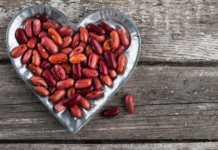For Educational Purposes Only.
Those who suffer from kidney disease have a common problem, constipation. Constipation can result from; medication, too much fiber, fluid restrictions, and lack of exercise. The average adult should have about 20-30 grams of fiber per day1. For those with kidney disease the upper limit may be impossible to reach. Most fiber rich foods are high in potassium and phosphorus, which must be limited in those with kidney disease. Also, when increasing the amount of fiber you eat per day, you should also increase the amount of water you drink accordingly.
For those with kidney disease, take heed of your fluid allowance when increasing the amount of water you must drink along with the fiber. Rather than focusing on the numbers (grams of fiber) focus on increasing the number of high fiber options into your diet. Fruits like raspberries, blackberries, pears, apples, strawberries, blueberries, and applesauce can be great options. If you are looking to eat veggies high in fiber, try peas, broccoli, green/yellow beans, cauliflower,zucchini, carrots, corn, and cabbage. Or, you can do it the old fashioned way and have cereal high in fiber (shredded wheat),air popped popcorn,wheat bread,whole grain bread,and even a table spoon of ground flax.
Reduce constipation by eating five servings of low potassium fruits and vegetables each day, drink plenty of water, get active, and talk to your doctor2!
Inflammation is a measure of the damage going on inside your body. Scientists at the Utah School of Medicine in Salt Lake City have shown that an increase in dietary fiber is associated with decreased inflammation and all-cause mortality in patients with Chronic Kidney Disease3. By looking at the data ascertained from 14,533 participants, they found that each 10g/day increment in total fiber intake is associated with significant decreases in inflammatory markers such as C-reactive protein (CRP)3. Each 10 gram per day increase in fiber was also associated with a 19% decrease in mortality for the Chronic Kidney Disease patients3.
Adding fiber to the diet is a great way to keep the gut microbiome in equilibrium. When the gut is in equilibrium, it is able to decrease the production and absorption of various toxins like C-reactive protein, and tumor necrosis factor alpha. Even if you do not have Chronic Kidney Disease, you should still try to increase your daily dietary fiber intake. Especially those who are diabetic, and hypertensive should pay close attention to their dietary fiber intake, as both diabetes and high blood pressure put you at risk for Chronic Kidney Disease4. Through proper daily fiber intake, you can reduce your risk of chronic kidney disease by reducing systemic inflammation, reducing tissue damage. So, take that extra teaspoon of flax, your body will thank you!
Sponsor: Kibow Biotech® 
References:
- UCSF Health. (na). Increasing Fiber Intake. Retrieved from https://www.ucsfhealth.org/education/ increasing_fiber_intake/
- Alberta health services. (2013, May). Tips to Reduce Consitpation on Your Kidney Diet. Retrieved from https://www.albertahealthservices.ca/assets/info/nutrition/if-nfs-tips-to-reduce-constipation-on- your-kidney-diet.pdf
- M Raj Krishnamurthy, Vidya & Wei, Guo & C Baird, Bradley & Murtaugh, Maureen & B Chonchol, Michel & L Raphael, Kalani & Greene, Tom & Beddhu, Srinivasan. (2012). High dietary fiber intake is associated with decreased inflammation and all-cause mortality in patients with chronic kidney disease. Kidney international. 81. 300-6.10.1038/ki.2011.355.
- National Kidney Foundation. (2017, February 03). Diabetes – A Major Risk Factor for Kidney Disease. Retrieved fromhttps://www.kidney.org/atoz/content/diabetes




